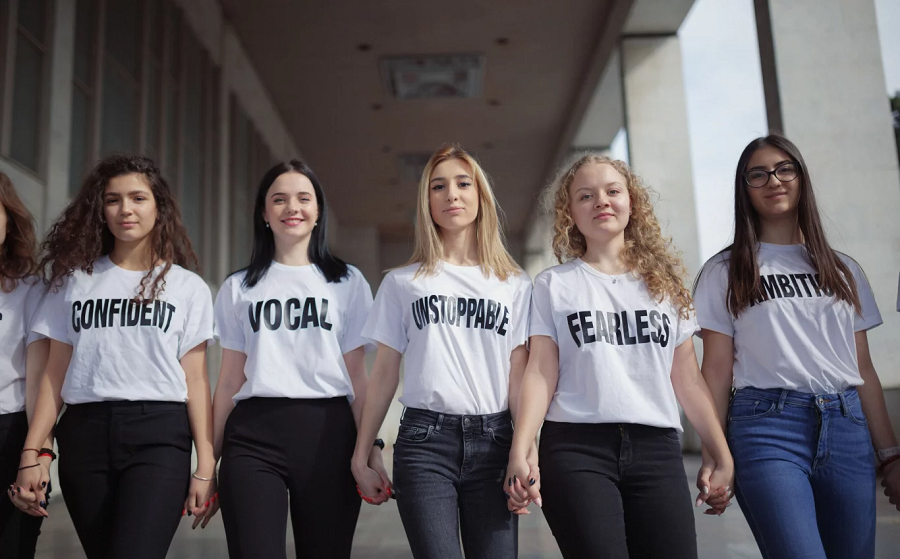EU Neighbours. Despite progress toward gender equality, harmful stereotypes still shape everyday life in the Eastern Partnership countries, Armenia, Azerbaijan, Belarus, Georgia, Moldova, and Ukraine. A 2022 Baseline Study on gender norms and stereotypes in the region, carried out by the EU 4 Gender Equality programme, revealed that deep-rooted stereotypes continue to hinder progress. We asked experts from Armenia, Azerbaijan, Georgia, and Ukraine to confront some of the region’s most common gender stereotypes, to understand how we can build more equal communities for everyone.
Stereotype #1. “Women should focus on family over careers”
The Baseline Study shows that the ‘good mother’ stereotype still pressures women to prioritise household duties over career development, especially during their children’s early years.
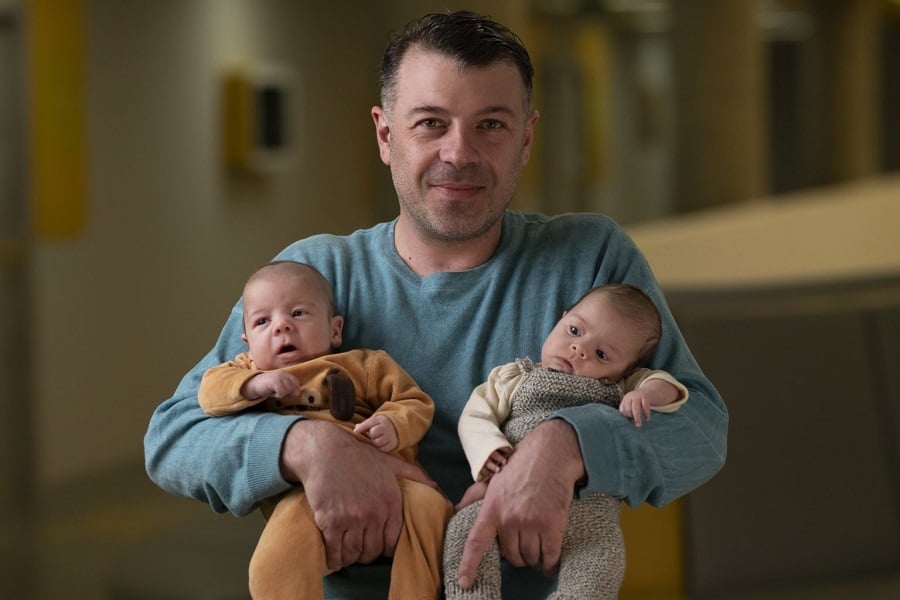
To promote the role of fathers and to help men build stronger relationships with their children, the EU4 Gender Equality project has established Father Schools across the Eastern Partnership
“This societal expectation limits women’s participation in the labour force while burdening them with the majority of unpaid care and domestic work,” says Guillem Fortuny, author of the 2024 Follow-up Assessment on gender norms and stereotypes in the EU’s Eastern Partnership countries, also conducted as part of the EU 4 Gender Equality initiative. “Discriminatory practices in the workplace are reinforced by traditional company cultures, leadership values, and a general lack of acceptance for women in leadership roles,” he added.
Read also
The situation is exacerbated by the lack of paternity leave, flexible parental leave, and leave-sharing arrangements across the region. The stereotype of the man as the primary breadwinner also contributes to the idea that women belong in the home.
Bridging the gap in unpaid domestic and care work between men and women requires a comprehensive approach. According to Sabina Manafova from UNFPA Azerbaijan, gathering data about this issue is crucial. Such data can highlight the significant contributions that women make through unpaid work, helping policymakers grasp the scale of the issue, and raising public awareness about its impact on women’s financial independence.
“This data is vital for the design and implementation of informed policies that can encourage men to take a more active role in childcare and domestic chores, fostering a culture where caregiving is seen as a shared duty rather than solely a woman’s responsibility. In parallel, introducing family-friendly work policies, such as flexible working arrangements, can help both men and women to better balance their professional obligations with family duties, further promoting shared engagement. Engaging communities is vital for fostering a cultural shift. Alongside these efforts it’s important to launch educational programmes targeted at both the public and private sectors,” Manafova says.
The findings from the Follow-Up Assessment explore the progress made in breaking down harmful gender norms across those communities who were involved in the EU 4 Gender Equality programme, showing that targeted interventions are beginning to make a difference. Men involved in these efforts are more likely to support shared responsibilities for providing for the family, with 57 per cent compared to 39 per cent who did not participate. Similarly, young people exposed to these interventions are more inclined to believe in equal decision-making on day-to-day expenditures, with 84 per cent supporting this view, compared to 64 per cent among those not involved.
Stereotype #2. “Women and girls don’t belong in STEM”
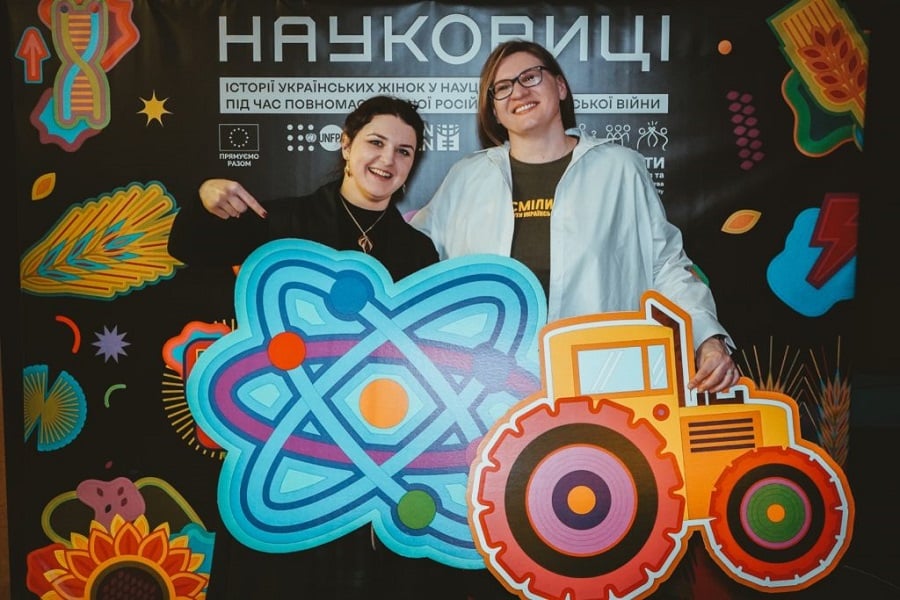
Ukrainian scientists at the premiere screening of the “Women in science” documentary about Ukrainian women in science during the full-scale Russian invasion. Photo: INSCIENCE
Beyond household and caregiving expectations, gender stereotypes also pervade education and professional fields. Women in male-dominated fields such as Science, Technology, Engineering, and Mathematics (STEM) in Ukraine report that stereotypes and societal expectations often limit their access to these careers. According to findings from the Follow-Up Assessment, a lack of visible role models and societal bias discourage girls from pursuing STEM careers.
“Many young women in Ukraine and across the region are steered away from STEM fields simply because society does not envision them in these roles,” says Anna Orekhova, Co-Founder and Partner at the InScience NGO. She added that this pressure could be strong enough to cause talented women to leave these fields early in their careers.
Building an environment that supports women in STEM requires structural changes. Anna Orekhova believes the solution lies in building an ecosystem that involves educational institutions, businesses, and civil society, therefore promoting gender equality in STEM across various sectors.
“Communication campaigns featuring successful female scientists are also needed to dismantle the societal norms dictating that men focus on their careers while women handle household and childcare duties,” she added.
Stereotype #3. “Violence could be justified”
Gender-based violence remains one of the most widespread human rights violations, deeply rooted in gender inequality, discrimination, and harmful cultural and social norms. According to Irina Japharidze from UN Women Georgia, in some societies, violence is justified when it is believed that women have violated social norms.
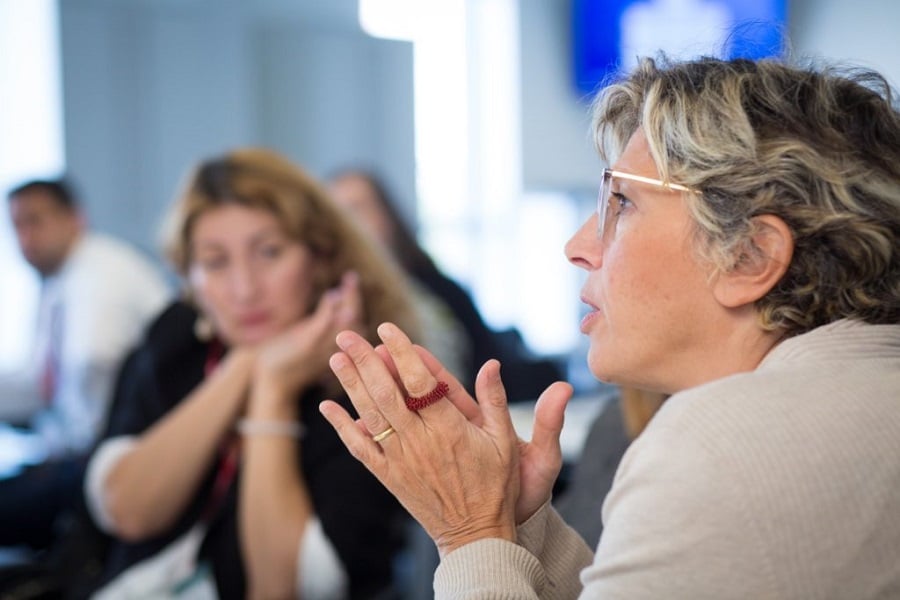
A study tour of the “EU 4 Gender Equality: Together against gender stereotypes and gender-based violence” programme to the Caledonian System, a programme for tackling domestic abuse in Scotland. The study tour aimed to guide the future implementation of violence prevention initiatives in the Eastern Partnership countries. Photo: EU 4 Gender Equality
Local advocates and civil society organisations who participated in the Follow-Up Assessment on gender norms and stereotypes indicated that tolerance for violence remains high in society. They emphasised the need for awareness-raising campaigns, stronger institutional support, and educational initiatives starting from an early age and involving students, parents, and schools.
“A 2022 study in Georgia found that about a quarter of the population still believes that in certain cases, it’s justified for a husband to beat his wife,” says Irina Japharidze.
Another significant issue is that survivors of violence often struggle to report their experiences.
“Up to 40 per cent of women in Georgia who have experienced violence have never reported it, sometimes not even to family or friends. They fear they won’t be believed, or worse, that they’ll be judged by society,” Japharidze explained. This stigma, combined with societal pressure, frequently forces women to withdraw their complaints, even when they do come forward.
To tackle these deeply ingrained beliefs, Irina Japharidze emphasises the need for a “holistic approach”, addressing the issue on multiple levels. Policies and legislation must be gender-sensitive, and the institutions responsible for enforcing these laws – such as the justice system, healthcare providers, and social services – must be better equipped to support survivors.
According to the Follow-Up Assessment, target interventions have successfully contributed to perceptions of gender equality and social norms among health-care professionals.
Stereotype #4. “Sexual education is useless”
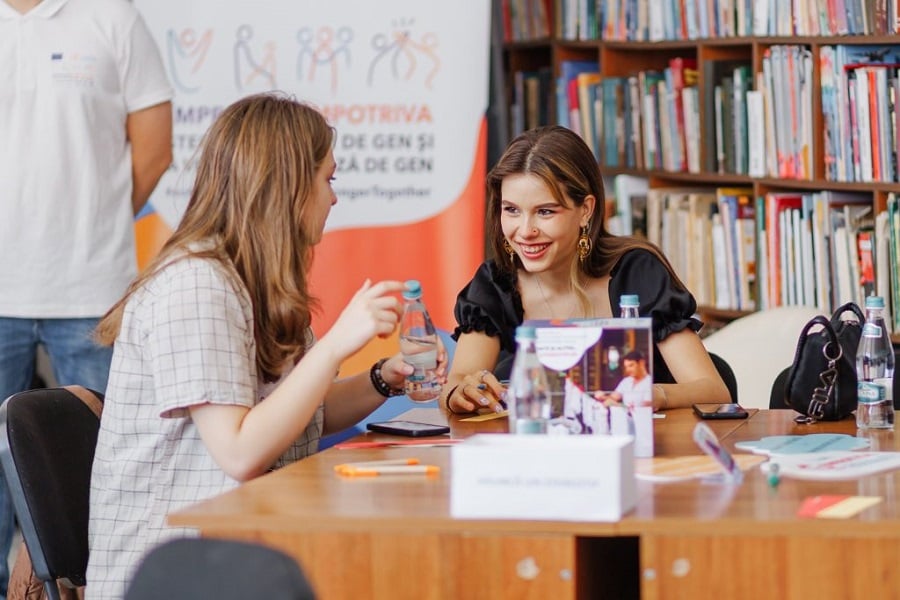
An educational event for youth on gender stereotypes and gender-based violence in Ștefan Vodă, Moldova, August 2024. Photo: EU 4 Gender Equality Moldova/Artur Lupu
Sexual education plays a crucial role in shaping healthy attitudes toward relationships, gender, and consent, yet it remains undervalued in many societies. According to Iryna Rubis, Head of the Pislyazavtra NGO in Ukraine, the lack of education on issues related to gender and sexuality is a significant driver of stereotypes.
“When we ask teenagers and adults about the sources of gender bias, they consistently point to the lack of education on these topics as one of the key reasons. Comprehensive sex education breaks down harmful myths and stereotypes related to sexuality, bodies, and gender roles. By providing accurate information and encouraging an open dialogue with comprehensive sex education formats, we not only embrace gender equality and reduce gender-based violence and discrimination but boost overall tolerance and contribute to equitable society formation,” Rubis says.
Various studies, such as the European Parliament’s study on the importance of comprehensive sex education, confirm that comprehensive sex education is essential to achieving gender equality and preventing gender-based violence.
“It empowers people not only to challenge traditional stereotypes but also to become allies, amplifying the voices of minorities,” Rubis adds.
Stereotype #5. “Women with disabilities don’t belong in the workforce”
Women with disabilities continue to face significant barriers in accessing professional opportunities. The Follow-Up Assessment on gender norms and stereotypes reveals that most women with disabilities in the Eastern Partnership countries highly value participating in the labour market. However, focus group discussions confirmed that they face discrimination from recruiters, making it difficult to secure well-paying jobs. Additionally, the lack of quality inclusive education, as well as physical, informational and communicational barriers in schools and universities further limits their opportunities, leaving many women without the qualifications needed for employment.
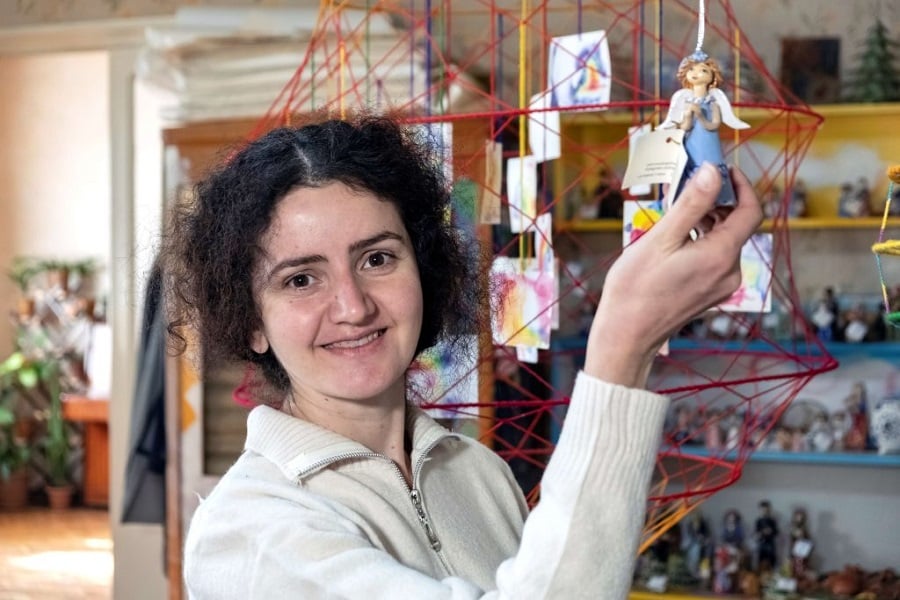
Gohar Petrosyan has hearing and speech disability. Despite her disability, she became a famous artist and owns the Art Centre in Hatsik village in Armenia
“Women with disabilities face stereotypes both as women and as individuals with disabilities. Society views them as caregivers while at the same time deeming them in need of care, creating an almost insurmountable barrier,” says Gayane Grigoryan, Project officer of the ‘Agate’ Rights Defence Centre for Women with Disabilities NGO.
Grigoryan explains that in Armenia, educational institutions often lack the necessary resources to accommodate students with different types of disabilities, and societal expectations further discourage them from pursuing higher education. “Real change happens when we challenge stereotypes and create environments that support everyone’s potential,” she adds.
Empowering change through action
The journey toward gender equality in the Eastern Partnership countries is complex, but progress is possible through continued education, advocacy, and by challenging deeply rooted stereotypes. By empowering individuals to rethink outdated norms and promoting equal opportunities for all — whether in the workplace, education, or at home — we can create a society where everyone’s potential is fulfilled.
Author: Olga Konsevych




















































